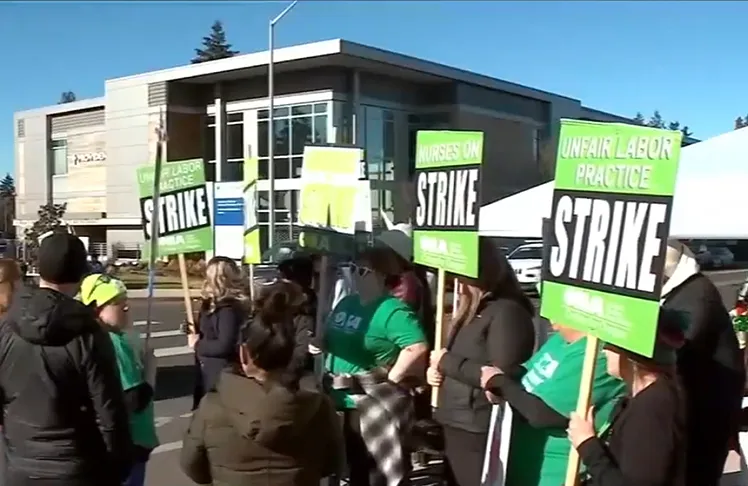
Oregon is moving closer to allowing striking workers to receive weekly unemployment benefits following a narrow vote in the state Senate on Thursday. Senate Bill 916 passed with just 16 votes in the 30-member chamber, with two Democrats breaking ranks over concerns that the policy could financially burden struggling cities and counties.
The slim margin came after over an hour of debate, during which most Democrats argued that unemployment benefits would be infrequently utilized but could provide striking workers with the stability they need to negotiate fair contracts. Opponents countered that the policy could increase costs for both governments and businesses, potentially leading to longer and more frequent strikes that might deplete the state’s unemployment fund.
Currently, unemployment payments in Oregon range from $196 to $836 per week and are only available to those who are unemployed through no fault of their own. SB 916 would change this, making Oregon the first state to offer unemployment benefits to both public and private sector workers on strike. New York and New Jersey, which also provide unemployment pay to striking workers, do not allow public employees to strike.
Proposed by labor unions and supported by the majority Democrats who often rely on labor for political backing, the bill stipulates that workers striking for at least two weeks would be eligible for weekly benefits. However, debates have centered around how much this new law would increase unemployment payouts in Oregon.
The Oregon Employment Department has stated it cannot accurately predict the financial impact. If the trends of the past decade continue, the department estimates that Oregon could pay out approximately $4.7 million in unemployment benefits to striking workers over the next two years. If recent trends, including lengthy strikes by Portland teachers and Providence nurses, persist, that figure could rise to $11.2 million.
The department also noted that these increased payments would not necessitate higher employer taxes for unemployment insurance. However, public employers are responsible for reimbursing the state unemployment fund for any payouts made to former employees.
SB 916 seeks to prevent public employers from incurring additional costs during strikes, but challenges remain. Cities may need to hire temporary workers during strikes, incurring costs beyond unemployment payouts. During the longest Republican walkout in state history in 2023, similar arguments were heard that diverged sharply from the law approved by Democrats on Thursday.
Concerns regarding the bill’s impact on school districts and local governments led two Democrats to oppose it, while Republicans unanimously rejected the proposal and introduced a “minority report” as a counter-proposal. This alternative would have required unions to maintain their own funds to compensate workers during strikes lasting up to four weeks, with workers required to repay state benefits received after that period, plus interest. Additionally, the minority report would prohibit public employees from striking.















